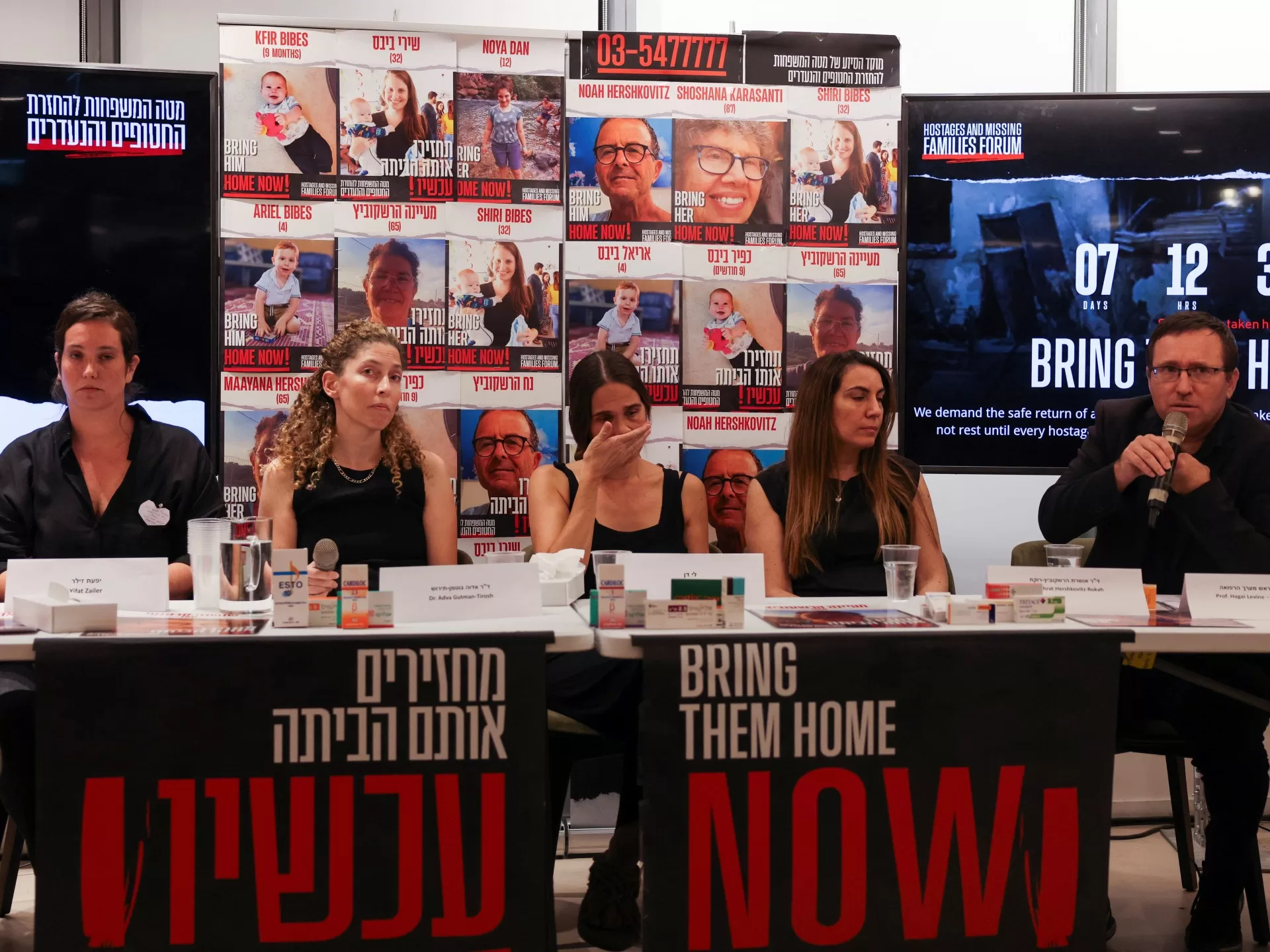Two Israeli captives – identified as Fernando Simon Marman, 60, and Louis Har, 70 – were rescued in the operation. They were captured by Hamas fighters from Kibbutz Nir Yitzhak on October 7.
Israel has described the rescue of captives as one of the key goals of its war in Gaza, in which more than 28,000 people have been killed, most of them women and children.
However, far more captives have been released through diplomatic negotiations and during a brief truce than have been rescued through military operations. And Israel’s own military operations have led to the deaths of some captives.
How many captives were taken on October 7?
At the time, the military wing of Hamas, the Qassam Brigades, stated it had taken 200 to 250 captives.
According to Israeli authorities, the number of captives is 240, which includes Israeli soldiers, civilians and foreigners. Israeli army spokesperson Daniel Hagari has confirmed that a “substantial” number of captives are military officers.
Hamas leader Mousa Abu Marzouk stated the following in November: “All those captured for us are Israelis although there is an appeal to look at their original nationalities in the hope that this will save them.”
How many of the captives have been released or rescued?
In mid-October, the first set of captives was released by Hamas, four in total. On October 20, two US citizens were released – Judith Raanan, 59, and her daughter, Natalie Raanan, 17. On October 23, two Israeli women were released – Nurit Cooper, 79, and Yocheved Lifshitz, 85.
In late October, Private Ori Megidish was freed during a ground operation by Israeli forces.
By the end of a six-day truce on November 30, 105 captives had been released by Hamas and 240 Palestinian prisoners had been freed by Israel. A number of foreign nationals – one Filipino, one dual Israeli-Russian citizen and 23 Thai citizens – were among those released.
How many of the captives have been killed?
According to the Qassam Brigades, 50 captives have been killed in Israeli air raids. Israeli intelligence officers say 30 captives have died in Gaza so far since they were taken to the enclave.
On December 16, three Israeli captives were mistakenly killed by Israeli soldiers in the Shujayea neighbourhood of Gaza City. The captives were carrying a stick with white flags that read “SOS” and “Help, three hostages” in Hebrew. They were identified as Yotam Haim Samer, Fouad Al-Talalka and Alon Lulu Shamriz.
The same day, hundreds of people took to the streets in Tel Aviv to protest the killing of the three captives, blocking major streets and commercial centres in the city.
“This is an unbearable tragedy, and all of Israel is grieving their loss this evening,” Israeli Prime Minister Benjamin Netanyahu said in a statement.
What has Israel said about its rescue operations?
On Sunday on the US TV channel ABC, Netanyahu was asked how many of the 132 remaining captives are still alive. He said: “Enough to warrant the kind of efforts that we’re doing, and we’re going to try to do our best to get all those who are alive back and frankly also the bodies of the dead.”
After Marman and Har were freed that night in an operation that killed 100 Palestinian civilians, Netanyahu said: “Only the continuation of military pressure, until complete victory, will result in the release of all our hostages.”
He has rejected negotiations with Hamas to free the rest of the captives.
However, Israeli and Hamas officials are holding talks for another truce and captive release, but details of the negations in Cairo and the terms have yet to be released.
A three-phase truce offer by Hamas last week was rejected by Israel.
Since then, it has said it is planning to launch an offensive in Rafah amid international pressure against the operation in a city packed with 1.4 million people, most of whom were displaced from other parts of Gaza by a four-month Israeli bombardment and ground operation.
Global leaders, including United Nations chief Antonio Guterres and United States President Joe Biden, have warned against the offensive. The White House said Israel has an “obligation” to protect civilians in Rafah.
“A major military operation in Rafah should not proceed without a credible plan for ensuring the safety and support of more than one million people sheltering there,” Biden said on Monday after meeting Jordan’s King Abdullah at the White House.
